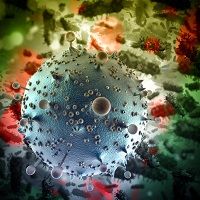New Discovery Shows How Blood Thinner Helps Defend Against HIV
The relationship between a blood thinner and the body's natural defense against HIV was discussed in new research published in the Journal of the American Chemical Society.

The relationship between a blood thinner and the body’s natural defense against HIV was discussed in new research published in the Journal of the American Chemical Society.
Lead Researcher Jesus Angulo, MD, and his University of East Anglia School of Pharmacy colleagues studied the interaction between the protein langerin and the anticoagulant drug heparin to understand the developed binding sites.
“Langerin is produced by immune cells which are present in genital mucous,” Angulo said in a news release.“They constitute the first obstacle that the HIV virus finds in its way to infecting someone.”
This first mechanism shows how the protein’s presence on Langerhans cells acts as a defense against HIV-1 particle transmission. Previous research uncovered the interaction binding sites between langerin and glycosaminoglycans (GAGs). The authors applied this when studying the second mechanism of langerin binding sites when it came into contact with heparin.
While heparin is widely used as a blood thinner to prevent clots, the body also produces it naturally.
“Langerin-heparin interactions are thought to be important in the degradation of the HIV virus,” Angulo said.“The way that heparin interacts with langerin is important because it is thought to stabilize the formation of granules that facilitates the elimination of HIV particles.”
Angulo explained that this is basic structural research but serves as a significant step. Although this study provides important information on the natural barriers the body has against the virus, taking heparin or other anticoagulant drugs will not protect against it.
As the team looks forward, the aim is to create drugs that act like HIV cellular receptors without altering langerin’s natural production in order to defend against the disease.
“This is obviously a long-term goal towards which this research is providing significant initial steps," Angulo said.